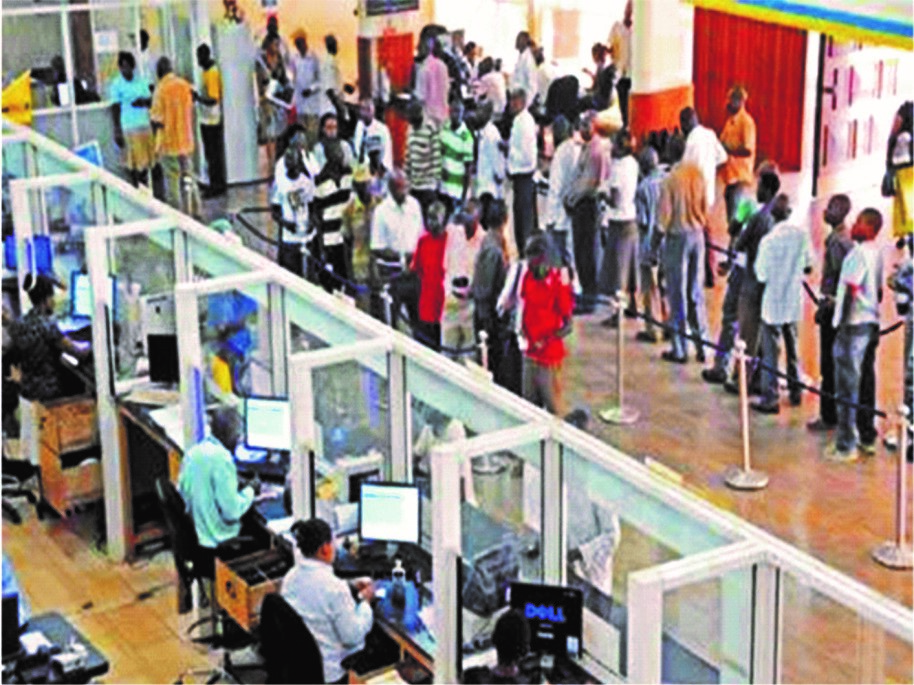Published
2 years agoon

Accounting profession is beginning to change from examination for irregularities to examination for fraud on the part of employees and the management. Cases of bankruptcy have been seen and reported over the years because of forgeries and fake preparation of accounting books to hide the skimming sums of fraud from public institutions and public interest entities. The effect is that investors lost their life savings, government projects are not properly carried out and poverty continues to spread and increase. STELLA OKORO and LAWAL AMINU ADAMS write.
THE above has affected the audit procedures to encompass ‘external third party’ enquiries. Financial Institutions and reporting agencies are becoming more involved with business organizations financial affairs by requiring more disclosures. More methods are being developed to detect fraudulent schemes before huge losses are incurred.
Forensic Accounting can be defined as the science of gathering and presenting financial information in a form that will be accepted by a court of jurisprudence against perpetrator of economic crime, Forensic Accounting requires in-depth investigation, report articulation, giving legal support in Court as expert witness and giving expert opinion on critical issues concerning the field. The process of engagement, legal requirements, investigative report writing and expert testimony in courts, among others are critical to its education.
Forensic Accountants in Public institutions should know what financial data are admissible in a court of law and the financial investigators should know how to use financial information to enhance legal cases. Apart from knowledge of accounting, law and criminology, a forensic accountant also needs to be familiar with corporate financial planning and management. He also needs to have computer skills, good communication and interview skill.
There are many types of financial crimes expected to be known by the Forensic Accountant. Some can be solved in short periods while others will take longer periods. Time required is directly related to the complexity of the crime. Complex financial crimes consume long time to gather huge amounts of financial records to support conviction. Greed usually is the denominator of all financial crimes.
Financial crimes among others may include the following: bribery, fencing, skimming, stock fraud and manipulation, racketeering, corrupt churches, forgery, larceny, robbery, tax evasion, bank fraud, government contract fraud, extortion, money laundering, computer thefts, corporate fraud, swindlers, kidnapping, pension fraud and so on. Forensic Accountant should be knowledgeable of legislations and enforcement agencies relating to financial crimes.
The bodies empowered to fight against financial crimes in Nigeria are: Independent Corrupt Practices and other related offence Commission (ICPC) which was set up in 2000 to fight corruption. Economic and Financial Crimes Commission (EFCC) which came up later in 2002 to fight financial crimes. They were empowered to arrest, investigate and prosecute cases of economic crimes including corruption.
Forensic Accountant’s role in Public Institutions is distinct from that of Independent Auditor. According to Steven L. Skalak, the auditors’ concern is that the financial statement of an entity be stated fairly in all material respects accordingly. The auditors’ responsibility is to design and implement audit procedures of sufficient scope and depth to detect materials deficiencies in financial statements especially, without regard to the source or origin of the deficiency. Auditors are charged with:
. Making appropriate, reasonable efforts to detect material misstatements in financial statement, and causing management to correct material misstatements or misrepresentation before the financial statements are shared with the user community or, alternatively, alerting investors not to place reliance on the statements through qualification of their professional opinion issued as part of the companies Public filings.
Seemingly, simple statements of the auditors mission brings into play a series of interrelated and complex concepts including: reasonable assurance, material misstatement, detection as distinct from deterrence and investigation expectations about the efficacy of the auditing process.
Forensic Accountants have largely separate set of concerns based on a different role that calls for a different tool, different thought process and different attitude. The Forensic Accountant’s concern is not with reaching a general opinion of financial statements taken as a whole derived from reasonable efforts within a reasonable materiality boundary. Instead the Forensic Accountants concern is, at a much more granular level, with the detailed development of factual information derived from both documentary evidence and testimonial evidence: about the who, what, when, where, how and why of a suspect or known impropriety. Sampling and material concepts are generally not used in determining the scope of Forensic Accounting procedures. Instead, all relevant evidence is sought and examine.
Based on the investigative finding: the Forensic Accountant assesses and measures losses or other forms of damage to the organization and recommends and implements corrective actions often including changes in accounting investigators, take preventive actions to eliminate recurrence of the problem. The Forensic Accountants findings and recommendations may form the basis of testimony in litigation proceedings or criminal action against the perpetrator. They may also be used in testimony to government agencies such as the Security and Exchange Commission in the United States or the Serious Fraud Office in the United Kindgom (that is EFCC equivalent in Nigeria). Accordingly, the scope of the investigation and the evidence gathered and documented must be capable of withstanding the challenge that may be brought by adversely affected parties or skeptical regulators.
Okoro and Adams are of the National Commission of Museum and Monuments, Jos.







